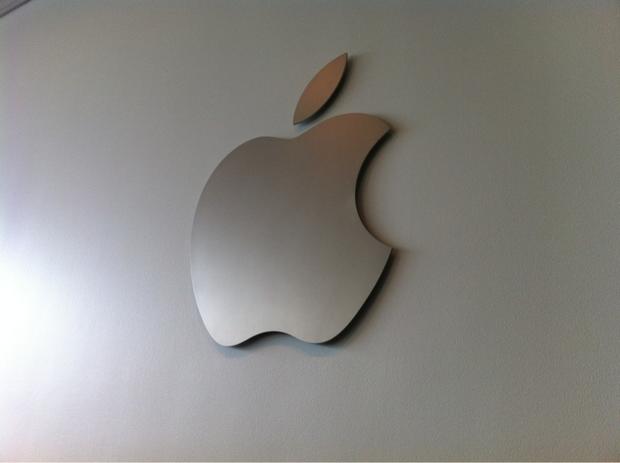Does Apple hide billions in profit with phantom taxes?
(AP) Apple is set to report financial results for the second quarter on Tuesday. Analysts are expecting net income of $9.8 billion. But whatever figure Apple reports won't reflect its true profit, because the company hides some of it with an unusual tax maneuver.
Apple Inc., already the world's most valuable company, understates its profits compared with other multinationals. It's building up an overlooked asset in the form of billions of dollars, tucked away for tax bills it may never pay.
Tax experts say the company could easily eliminate these phantom tax obligations. That would boost Apple's profits for the past three years by as much $10.5 billion, according to calculations by The Associated Press.
While investors might rejoice if Apple suddenly added $10.5 billion to its profits, unilaterally erasing a massive U.S. tax obligation could tarnish its reputation as a relatively responsible payer of U.S. taxes. Instead, the company is lobbying to change U.S. law so that it can erase its liabilities in a less conspicuous fashion. The issue has become part of the presidential campaign.
Like other companies, Apple typically keeps profits on overseas sales in overseas accounts. When someone buys an iPad in Paris or Sydney, for instance, the profit stays outside the United States.
Apple may pay some corporate income taxes on that profit to the country where it sells the iPad, but it minimizes these by using various accounting moves to shift profits to countries with low tax rates. For example the strategy known as "Double Irish With a Dutch Sandwich," routes profits through Irish and Dutch subsidiaries and then to the Caribbean.
When it comes to using creative tax techniques, Apple is no different from other multinational corporations, says Robert Willens, an independent accounting expert.
And just like other corporations, Apple leaves cash overseas. If it brought it home to the U.S., it would have to pay federal income taxes on the money (though it would get a credit for foreign taxes already paid). In Apple's case, those overseas accounts have grown to a staggering $74 billion - equal to the market value of Citigroup Inc.
The money is accumulating overseas because corporations are counting on lower U.S. tax rates in the future. At 35 percent, the U.S. corporate tax rate is among the highest for developed countries. In 2004, Congress enacted a one-year "tax holiday" for overseas earnings, and multinationals are hoping for a repeat of that. Presidential candidate Mitt Romney wants to permanently eliminate federal taxes on overseas profits. President Barack Obama attacked that idea last week, saying it won't create U.S. jobs, like the Romney campaign contends.
Where Apple does differ from other companies is that it sets aside a portion of these overseas profits, marking them as subject to U.S. taxes sometime in the future. Essentially, it's saying "this is money that we'll likely have to pay U.S. federal income taxes on" because we intend to repatriate it, says Willens.
But because Apple doesn't actually bring the profits into U.S. accounts, it doesn't pay the taxes. Instead, it records a tax liability. When Apple reports quarterly results, it subtracts these liabilities from its profits, even though it hasn't actually paid the taxes.
The liabilities accumulate, and as Apple's profits grow, they're piling up faster and faster.
"When you capitalize that into the future, it might be tens of billions of dollars," said Martin Sullivan, an economist with Tax Analysts, a nonprofit publisher.
The company had a net $6 billion of tax liabilities at the end of September, the last reported figure. It's had two blow-out quarters since then and is expected to report another one Tuesday. Based on reported and expected profits for the last three quarters, the liabilities can be estimated at around $10.5 billion.
Apple declined to comment on the specifics of its tax strategies or why it records tax liabilities that other multinationals avoid.
"Apple has conducted all of its business with the highest of ethical standards, complying with applicable laws and accounting rules," the Cupertino, Calif., company said in a statement.
Yet Apple has made clear that it has no intention of repatriating its profits from overseas at the current U.S. tax rate. When CEO Tim Cook announced that the company would start paying a dividend this summer, he said the board determined the size of the dividend solely by looking at the amount of cash the company has in U.S. accounts.
"We do not want to incur the tax cost to repatriate the foreign cash at this time," Chief Financial Officer Peter Oppenheimer told investors in March.
Apple's net tax liabilities started building three years ago, when its sales started rocketing because of the iPhone. In that time, the company has reported a total of $69 billion in net income. If it had applied the same accounting practices as other multinational technology companies, and not marked some overseas profits as subject to U.S. taxes, its profits would have been about $78 billion, or 13 percent higher.
The boost to net income could mean a boost to the stock, since companies are usually valued on their earnings. If investors were to value Apple based on the last 12 months of earnings, with the tax liabilities added to earnings, the stock might be 13 percent higher.
Willens and Sullivan say that Apple could erase its liabilities by considering the profits "permanently reinvested" overseas, acknowledging that they will never be brought home. That would erase the tax liability, but it could make Apple look like a less responsible corporate citizen.
"I doubt they're going to do that on their own, because they don't want to be set up for criticism," said Willens.
Groups such as Citizens for Tax Justice compile lists of the tax rates corporations report. Apple looks like a relatively good taxpayer on such lists, with a 24 percent rate. But Apple doesn't actually pay the 24 percent, since it isn't repatriating its overseas profits. The actual taxes Apple pays are 13 percent of profits, as computed by Sullivan. That's a relatively low rate compared with other multinationals.
But keeping the money overseas limits what Apple can do with it. It means, for instance, that Apple can't use it to buy another U.S. company, or give it to shareholders.
To get the money home without paying full U.S. taxes on it, the company advocates a change in U.S. tax law. It's a member of Working to Invest Now in America, or WinAmerica. The coalition is lobbying for two congressional bills that would temporarily reduce the tax rate on such earnings to 5.25 percent. That would encourage the repatriation of some of the $1.4 trillion in cash that U.S. companies have sitting in overseas accounts, the group says.
The temporary tax amnesty enacted in 2004, resulted in hundreds of billions being brought home to the U.S. But according to the Congressional Research Service, it didn't create jobs or stimulate the economy, as had been hoped.
Google Inc., Oracle Corp., Microsoft Corp. and Cisco Systems Inc. are also members of WinAmerica, but none of them stand to gain as much as Apple from a tax amnesty, because they have less cash overseas.

